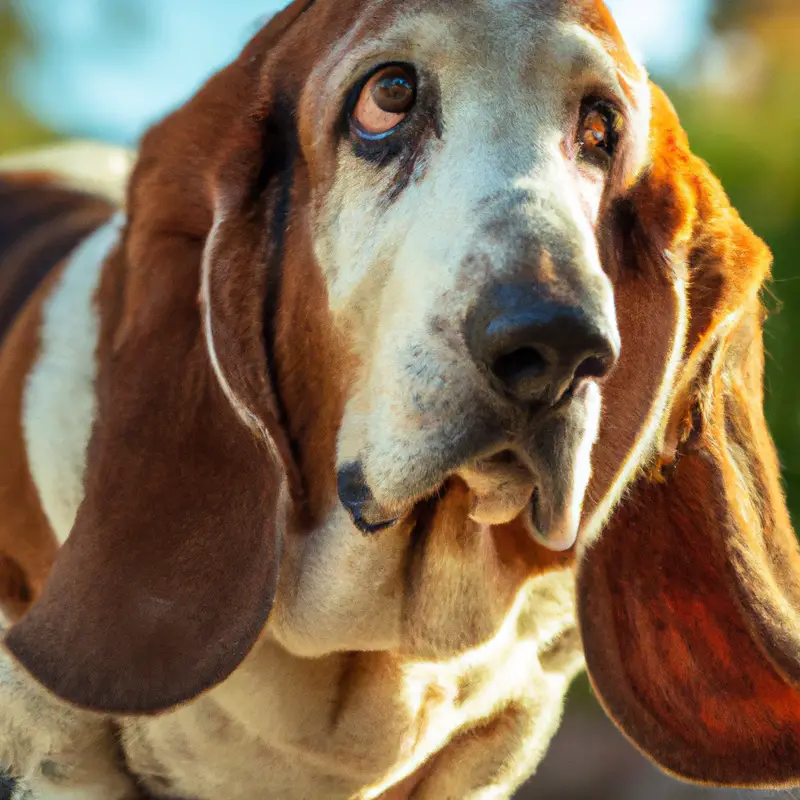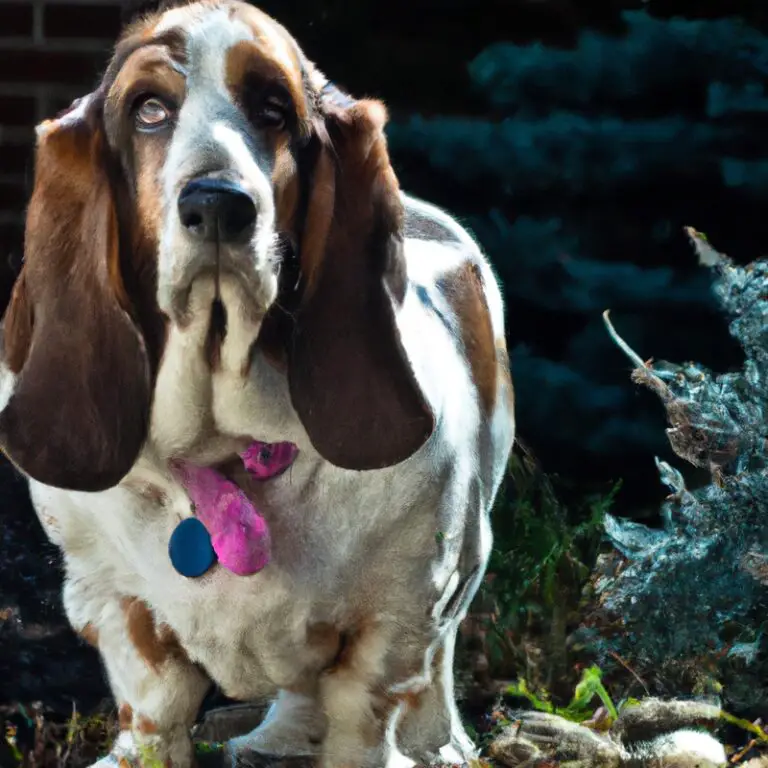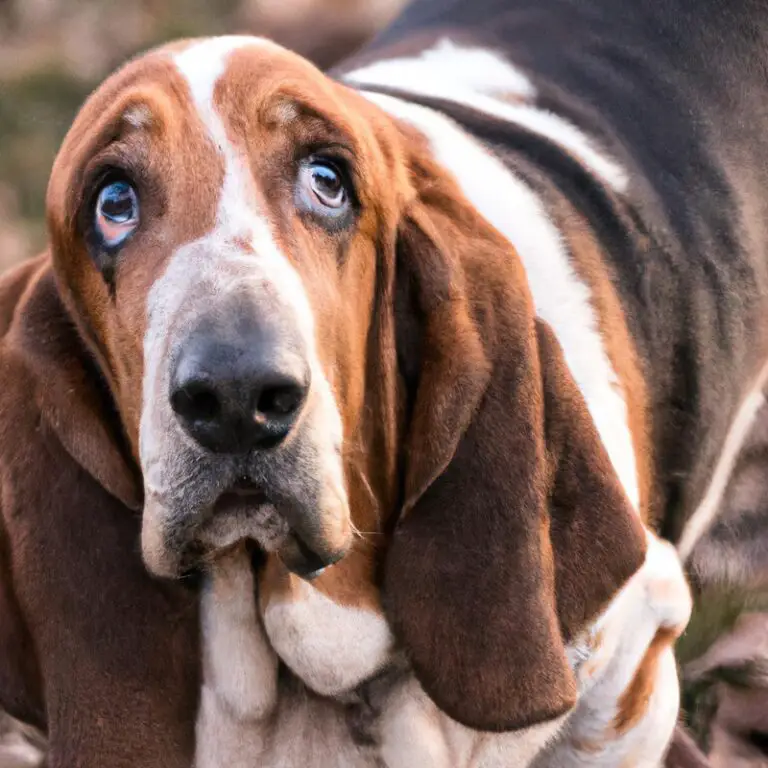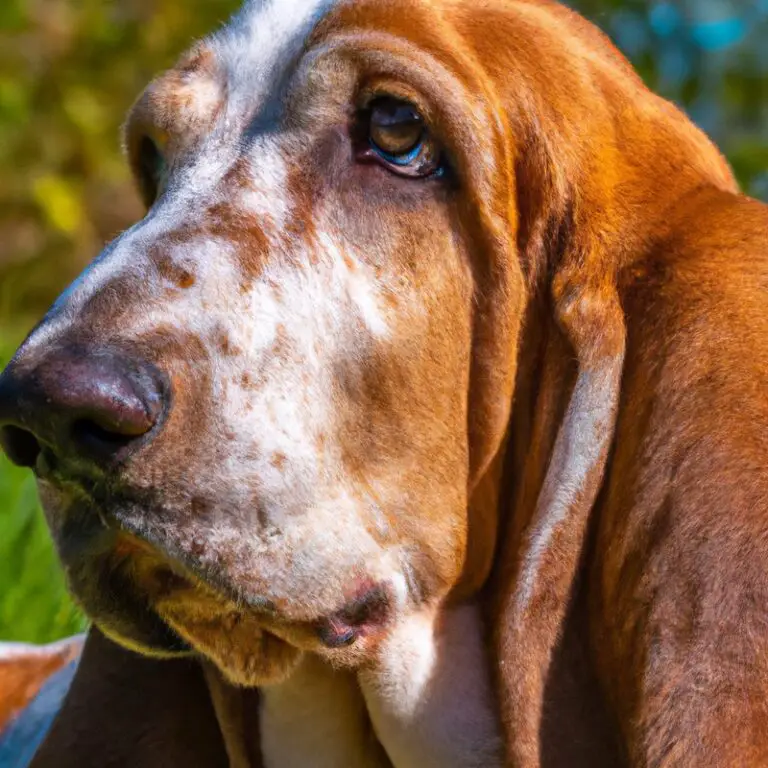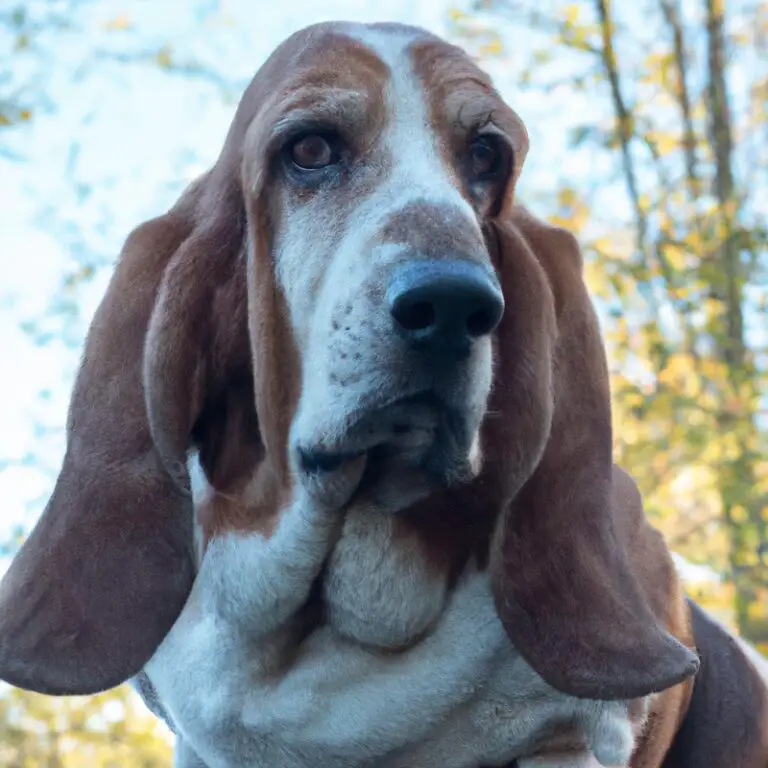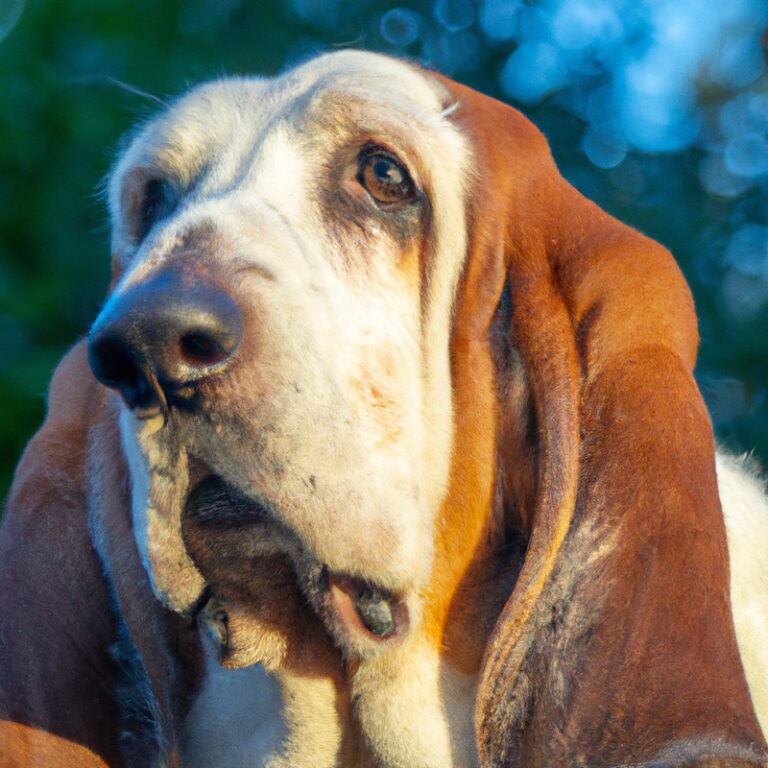How Do Basset Hounds Handle Being Left Alone For a Few Hours?
Key Takeaways:
- Basset Hounds can handle being left alone for a few hours, but longer periods may lead to separation anxiety.
- Providing mental stimulation and proper exercise can help alleviate Basset Hounds’ stress when left alone.
- Crate training and establishing a consistent routine can make Basset Hounds feel more secure when home alone.
- Hiring a pet sitter or using interactive toys can give Basset Hounds additional companionship and stimulation.
Have you ever wondered how Basset Hounds cope when they’re left alone? As a dog enthusiast, I can’t help but be fascinated by their unique temperament and behavior.
Basset Hounds, with their adorable droopy ears and soulful eyes, possess a special charm.
But do they experience separation anxiety like some other breeds? In this article, we’ll dive into the world of Basset Hounds and uncover how they handle being left alone for a few hours.
From understanding their temperament to tips for preparing them and dealing with separation anxiety, we’ll cover it all.
So, let’s embark on this journey to ensure the well-being of our beloved Basset Hounds!
| Pros | Cons | |
| Adaptability | Basset Hounds are generally adaptable and can learn to handle being left alone for a few hours. | Some Basset Hounds may have separation anxiety and may struggle with being left alone. |
| Exercise Needs | Basset Hounds have low exercise needs, making them suitable for owners who work long hours. | Lack of exercise or mental stimulation can lead to boredom and destructive behavior. |
| Training | Basset Hounds can be trained to be alone gradually, starting with short periods and gradually increasing the duration. | Some Basset Hounds may have stubborn tendencies and may take longer to adjust to being alone. |
| Separation Anxiety | With proper training and exercise, Basset Hounds can learn to manage their separation anxiety. | Some Basset Hounds may experience severe separation anxiety, causing distress when left alone. |
| Companionship | Basset Hounds are social dogs and may require additional enrichment, such as toys or puzzles, when left alone. | Loneliness and lack of human or canine companionship can lead to behavioral issues. |
Understanding Basset Hound Behavior
Basset Hound temperament and characteristics
Basset Hounds have a unique temperament and set of characteristics that make them adorable and lovable companions. They are known for being laid-back and easygoing, making them great family pets.
Bassets are affectionate, gentle, and good with children, making them an ideal choice for families.
They also have a strong sense of smell and love to follow scents, so it’s essential to keep them on a leash during walks. Their calm and patient nature, coupled with their cute droopy ears and sad eyes, make them irresistible to many dog lovers.
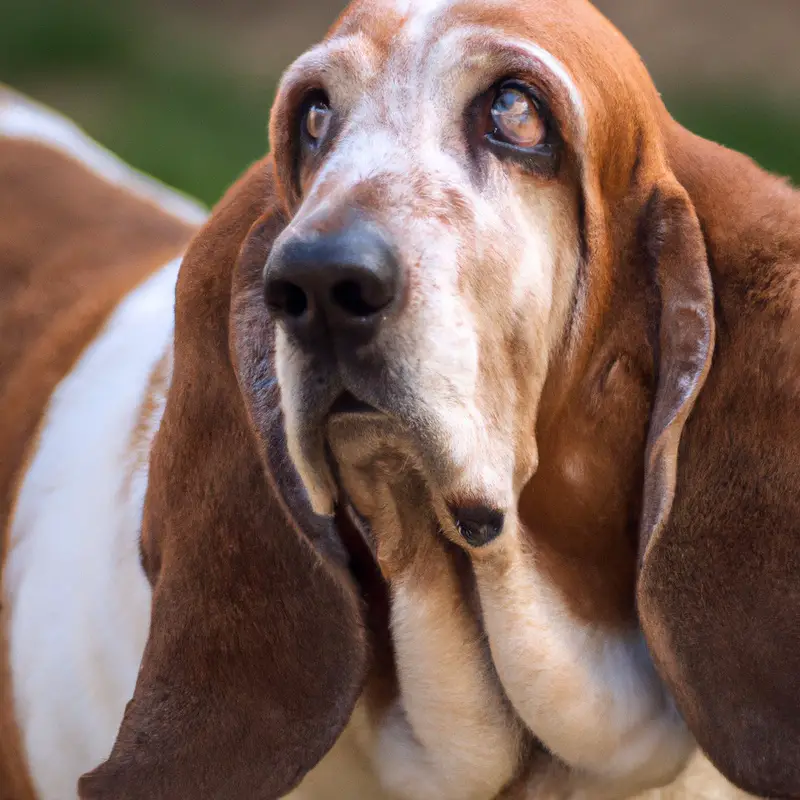
Separation anxiety in Basset Hounds
Basset Hounds are known for their sweet nature, but they can also experience separation anxiety when left alone.
This is a common behavioral issue in this breed.
Bassets are prone to developing a strong attachment to their owners, which makes it difficult for them to be alone for long periods.
Signs of separation anxiety include excessive barking, destructive behavior, and soiling in the house.
To manage separation anxiety in Basset Hounds, it’s important to gradually desensitize them to being alone, establish a routine and provide mental stimulation, and create a comfortable and safe environment for them.
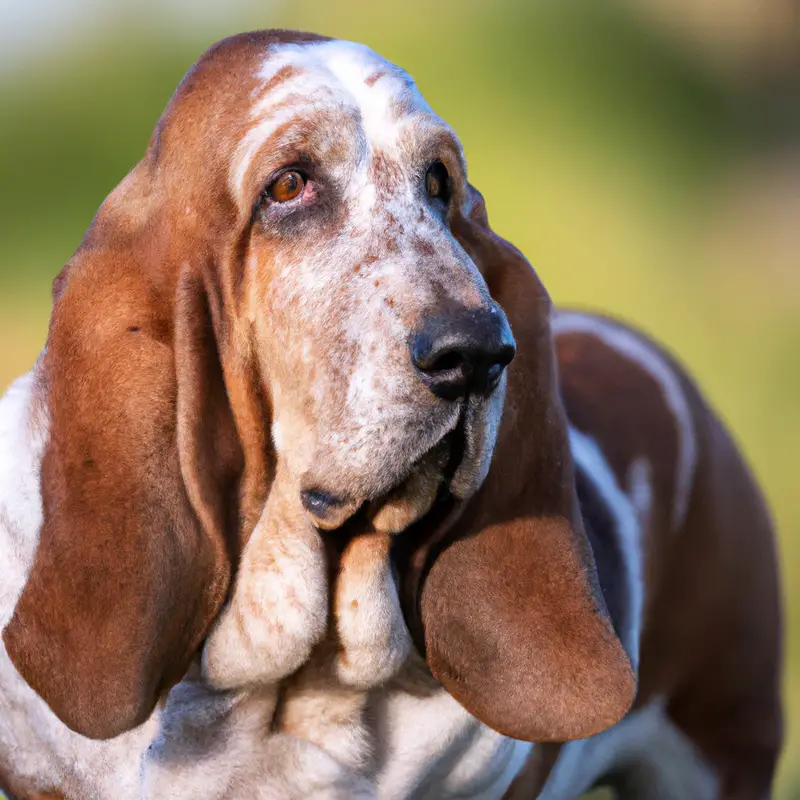
Preparing Your Basset Hound for Alone Time
Gradual desensitization to being alone
Gradual desensitization is a key technique for helping Basset Hounds become more comfortable with being alone. Start by leaving your dog alone for short periods of time and gradually increase the duration.
It’s important to remain calm and avoid making a big fuss when leaving or returning.
Provide your Basset Hound with engaging toys and puzzles to keep them occupied. This gradual process of getting them used to being alone can help reduce their anxiety and promote independence.
Establishing a routine and providing mental stimulation
Establishing a routine is important for your Basset Hound’s well-being when they’re left alone.
I suggest sticking to a consistent schedule for feeding, exercise, and bathroom breaks.
This helps them feel secure and know what to expect.
Providing mental stimulation is also essential.
You can do this through interactive toys, puzzles, and food-dispensing toys that keep them engaged and entertained.
Mental stimulation helps prevent boredom and keeps your Basset Hound’s mind active.
By establishing a routine and providing mental stimulation, you can help your Basset Hound feel more comfortable and content when they’re alone.

Creating a comfortable and safe environment
To create a comfortable and safe environment for your Basset Hound when they are alone, there are a few key things you can do. Firstly, make sure they have a cozy and quiet space to relax in, with comfortable bedding and some of their favorite toys.
Second, ensure that the area is free from any potential hazards or items they could chew on.
Lastly, consider leaving some soft background music playing to help them feel more secure. By implementing these measures, you can help your Basset Hound feel safe and content during their alone time.
Tips for Leaving Your Basset Hound Alone
Exercise and mental stimulation before leaving
Before leaving your Basset Hound alone, it’s essential to provide them with exercise and mental stimulation.
Take them for a walk or play a game of fetch to help burn off some energy.
Engage their mind with puzzle toys or treat-dispensing toys.
Consider giving them a stuffed Kong toy to keep them occupied.
Mental stimulation is just as important as physical exercise for a Basset Hound’s well-being.
By providing both, you can help prevent boredom and promote a more relaxed state when you’re away.
Providing interactive toys and puzzles
When it comes to keeping your Basset Hound entertained and mentally stimulated while you are away, interactive toys and puzzles can be a great solution. These toys engage your dog’s mind and provide them with a challenge and a way to keep themselves occupied.
Some options include treat-dispensing toys, puzzle feeders, and interactive toys that require your dog to problem-solve or manipulate objects.
These toys can help alleviate boredom and reduce anxiety in your Basset Hound, making their alone time more enjoyable. Just be sure to choose toys that are safe and appropriate for your dog’s size and chewing habits.
Using positive reinforcement and rewards
Using positive reinforcement and rewards is an effective way to encourage good behavior in your Basset Hound. When you leave your dog alone, make sure to reward them with treats, praise, or a special toy when they exhibit calm and relaxed behavior.
This will reinforce positive associations with alone time and help them feel more comfortable.
Avoid punishing or scolding your dog for any anxious behavior, as this can worsen their anxiety. Instead, focus on positive reinforcement to create a positive experience for your Basset Hound.
Dealing with Separation Anxiety in Basset Hounds
Recognizing signs of separation anxiety
Recognizing signs of separation anxiety in Basset Hounds is essential for addressing this issue effectively. Some common signs include excessive barking or howling, destructive behavior, pacing, drooling, and attempting to escape.
Other signs may include loss of appetite, excessive salivation, and urinating or defecating in the house despite being properly house-trained.
These behaviors usually occur when the Basset Hound is left alone or anticipating being left alone. It’s important to keep an eye out for these signs and seek appropriate help to manage and reduce your Basset Hound’s separation anxiety.
Techniques for managing and reducing anxiety
To manage and reduce anxiety in your Basset Hound, there are a few techniques you can try. Firstly, provide plenty of exercise and mental stimulation before leaving them alone.
This can tire them out and help to reduce their anxiety levels.
Secondly, consider using interactive toys and puzzles to keep them occupied and distracted while you’re away. These can provide mental stimulation and keep their minds engaged.
Lastly, use positive reinforcement and rewards to create positive associations with being alone.
This can help to alleviate their anxiety and make them feel more comfortable when you’re not around.
Seeking professional help if necessary
If your Basset Hound is experiencing severe separation anxiety or if you are struggling to manage their behavior, it may be necessary to seek professional help.
A qualified veterinarian or animal behaviorist can provide guidance and support tailored to your dog’s specific needs.
They can help you understand the root causes of the anxiety and develop a comprehensive treatment plan.
Remember, professional help can make all the difference in ensuring the well-being of your furry friend.
Monitoring Your Basset Hound’s Well-being
Using cameras or monitoring systems
Using cameras or monitoring systems can be a helpful way to keep an eye on your Basset Hound when you’re away. These systems allow you to remotely view live video feeds or receive alerts on your phone, giving you peace of mind knowing your dog is safe.
You can check on their behavior, ensure they have access to food and water, and even interact with them through two-way audio features.
Just make sure to choose a reliable and secure monitoring system to protect your privacy.
Identifying any behavioral changes or issues
Identifying any behavioral changes or issues in your Basset Hound is important for their overall well-being.
Look out for any sudden changes in their eating, sleeping, or bathroom habits.
Pay attention to any excessive barking, whining or destructive behavior.
Changes in their energy levels or social behavior should also be noted.
Keep an eye out for signs of anxiety or aggression towards people or other animals.
It’s crucial to address any behavioral issues promptly to ensure your Basset Hound’s happiness and comfort.
If you notice anything concerning, consult with a veterinarian or a professional dog trainer for guidance.
Seeking regular veterinary care
Regular veterinary care is essential for maintaining the health and well-being of your Basset Hound.
By scheduling routine check-ups and vaccinations, you can ensure that any potential health issues are caught early and treated promptly.
Additionally, your veterinarian can provide advice and guidance on preventive care measures, such as flea and tick prevention, dental care, and nutrition.
Building a strong relationship with your vet will not only benefit your Basset Hound’s physical health but also provide you with peace of mind knowing that you are doing everything you can to keep them healthy.
Final Verdict
Basset Hounds are generally known for their easygoing and independent nature. However, they can still experience separation anxiety if not properly prepared and trained.
Gradual desensitization, establishing a routine, and creating a comfortable environment are key factors in preparing your Basset Hound for alone time.
Additionally, providing mental stimulation, interactive toys, and positive reinforcement can help alleviate any anxiety they may experience. It is important to monitor their well-being through cameras or monitoring systems and seek professional help if needed.
With the right approach, your Basset Hound can handle being left alone for a few hours with ease.

